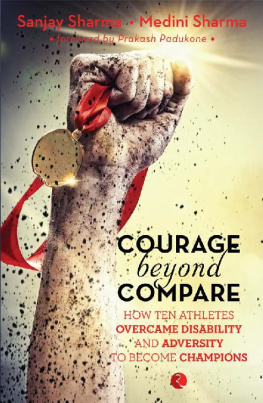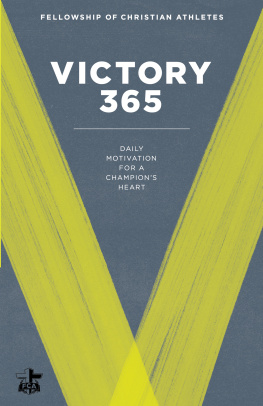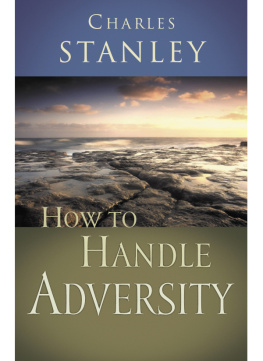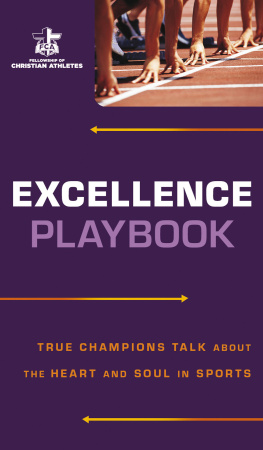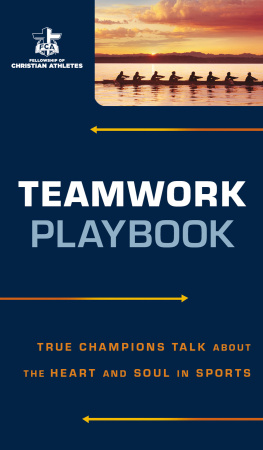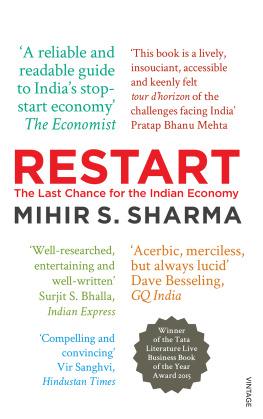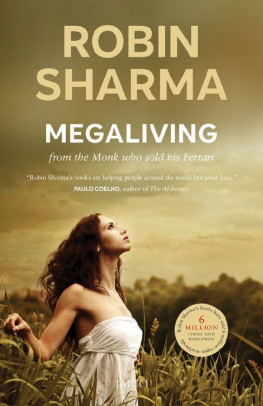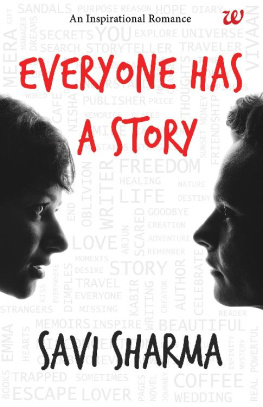
Sanjay Sharma represented India in badminton, and also served as coach for the national badminton squad. He is now a commentator on the game and a writer. Sanjay penned The World Beneath His Feet, the critically acclaimed biography of Pullela Gopi Chand, the iconic shuttler.
Medini Sharma, a former tennis international and sports producer on television, now works as senior producer with STAR Sports.

First published by
Rupa Publications India Pvt. Ltd 2014
7/16, Ansari Road, Daryaganj
New Delhi 110002
Copyright Sanjay Sharma and Medini Sharma 2014
Foreword copyright Prakash Padukone
All rights reserved.
No part of this publication may be reproduced, transmitted, or stored in a retrieval system, in any form or by any means, electronic, mechanical, photocopying, recording or otherwise, without the prior permission of the publisher.
ISBN: 978-81-291-3119-5
First impression 2014
10 9 8 7 6 5 4 3 2 1
This book is sold subject to the condition that it shall not, by way of trade or otherwise, be lent, resold, hired out, or otherwise circulated, without the publishers prior consent, in any form of binding or cover other than that in which it is published.
Contents
Rajeev Bagga
Satya Prakash Tewari
Nir Bahadur Gurung
Murlikant Petkar
Taranath Shenoy
Mansoor Ali Khan Pataudi
Farman Basha
Rajaram Ghag
Devendra Jhajharia
Malathi Holla
FOREWORD
I am truly overwhelmed by this incredible book which tells us the stories of the extraordinary struggles and trauma faced by some of the highly accomplished para athletes of India, who overcame unbelievable physical and mental challenges to become world beaters in their chosen sports disciplines. It is great to read that sports became the vehicle that catapulted them from traumatic lives to become true legends of India.
This was an emotional roller-coaster ride for me as I thumbed the pages. And I realized that what we, the so-called able-bodied have achieved, simply cannot be compared with the achievements of the ten athletes profiled here. Our successes pale in comparison when compared to the courage and devotion of these selected names. Sanjay Sharma, my old friend and colleague in the Indian badminton squad, and his charming daughter Medini, have written this with great passion, and they have very rightly said that for all differently abled people, every minute of their life is a trauma, riddled with obstacles that we cannot even begin to understand.
Simple things like boarding a train, a bus, or just walking down a street brings challenges to them which we cannot comprehend. The authors are right in saying that we as a society are mentally dysfunctional when it comes to understanding the lives the differently abled in our country lead. Do we ever give a thought to the problems they face every day, every hour? And are we not guilty as a people of not giving them simple dignity in life by trying to bring about changes that can make their lives more meaningful? And have we become so callous that we cannot even give the para athletes their dues after they have brought huge honours to India? We begrudge them even a well-achieved Arjuna Award or other state awards.
Imagine the super-athlete and former soldier Nir Bahadur Gurung, who has three silvers in the Asian Games, and also the elusive gold medal, and who does not even have a state award for excelling in sport. He brought tears to my eyes when he asks in his simple but very penetrating way, When they ask me to shed blood for the country, they do not ask which state of India I come from. But for getting a simple award, which I deserve, my statehood comes into question. Is this not a shame or a national embarrassment as the authors rightly say, that should shock our combined consciences?
I was stunned to read that Farman Basha defeated ablebodied athletes in powerlifting and that the federation passed a rule which then prohibited the differently abled from competing against so-called normal lifters. I would have thought that vice versa would have been the rule. And this pint-sized Hercules has never lost in the Indian Nationals in the last twenty years, has been ranked fourth and fifth in two Paralympics, is the Asian champion and has been awarded the Arjuna Awardbut our society could not even offer him a job!
And what a great story the Queen of her Chariot, Malathi Hollas life makes. A fellow Banglorean, she defeated her male counterparts in wheelchair racing.
Each and every chapter gives us some lesson to learn from.
It is well chronicled that Mansoor Ali Khan Pataudi and Rajeev Bagga played, competed and then excelled against normal players not only in open events in India, but took on the world and showed off their memorable talent which brought laurels to the country. They were indeed superhumans and I can only salute them. But how many know that Murlikant Petkar is the first Indian to win an Olympic gold way back in 1972? This brave soldier, wounded in war and with one bullet still lodged in his spine, made gigantic leaps by not only winning the Paralympics goldsetting a record in the processbut also won the gold in the Asian and Commonwealth Para Games. He makes us all look like pygmies.
Devendra Jhajharia is the only Indian ever to have the national flag unfurled in his honour at the main Olympic stadium when he won gold in the one-armed javelin throw at the 2004 Athens Paralympics. He repeated this feat at the 2013 world para athletics championships in France. He is a world champion with a world record, an Olympic champion with an an Olympic record and an Asian champion with an Asian record. In what way can I, or so many peers of mine, even think of comparing ourselves to this man?
This book is a treasure. I recommend it whole-heartedly and hope the entire country reads and learns something from the legends who are chronicled here. I, for one, felt humbled after reading every story. I hope that I have learnt something from each one of these heroes. If I imbibe even an iota of their greatness, I will become a better person. And so will each and every reader who lays his or her hands on this incredible book.
Prakash Padukone
PREFACE
It is believed that the word courage was coined in or around 1300 AD and was derived from the Middle English word corage. The word courage is a noun and, in modern layman terms, it is defined as the quality of mind or spirit that enables a person to face danger, difficulty, pain, etc. without fear; bravery.
So what does courage actually mean? Does it mean a state of mind that makes ordinary people perform extraordinary acts? Or does it make the common manthe aam admifight daily battles in our country, to live a life of respect? The essence of this word is something we see in many shades in our daily lives.
History also offers us many examples of courage that went beyond the realms of ordinary life: whether it was our own Bapu who, singlehandedly and with his sheer belief and conviction, took on the might of the Raj and threw the British out from India; or the venerable Anna Hazare who recently exhorted his countrymen to throw out the corrupt and venal politicians who have plundered the country and save the future for a new generation of Indians.
Of course it is in wars and natural calamities that we see courage of yet another kind where soldiers and even simple ordinary people rise above expectations and perform heroic deeds to save their motherland or just to save human lives and property from destruction.
Next page
